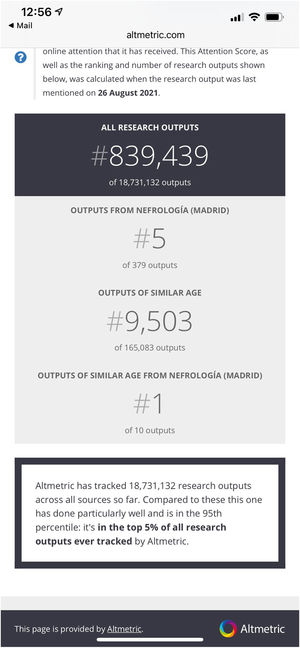We recently published in your journal a letter entitled, “Kidneys also speak Spanish”1 following a similar title in Kidney International (“English-Latin nomenclature conundrum: should we use kidneylogy, kidneylogist?”),2 formulated in linguistic terms and with a certain derisive tone. These letters were an initial response to the publication of the consensus of the Kidney Disease Improving Global Outcomes (KDIGO) initiative on the standardisation of nephrology nomenclature for scientific articles written in English3 and in which we brought to light the existence of certain discrimination against the classical medical terminology of Latin origin.1,2 These considerations were quickly shared by other journals, Latino groups, forums, social networks and specialised websites.4,5
The Latin American Society of Nephrology and Hypertension (Sociedad Latino-Americana de Nefrología e Hipertensión; SLANH) subsequently published a proposal for an Ibero-American consensus to standardise the nomenclature of kidney function and diseases,6 and a letter to the editor in this same journal in which it was stressed the need to harmonise nephrology terminology in Latin American countries.7 As a recent sharp editorial also says, these calls to preserve, for example, “renal” and “nephron” in the nephrological glossary is not trivial. Systematically selecting words of Anglo-Saxon origin could lead to situations where, for example, “peritoneal dialysis” could be replaced by belly-wall membrane blood purification.8
Following these premises, We published an editorial in your journal 9 that constituted the first formal initiative in our language, and that quickly exceeded the 95th percentile of the 18,731,132 biomedical articles tracked up to that moment by the prestigious Altmetric (Fig. 1). Given the significant repercussions, including social networks, we want to emphasise in this letter that the apparent over-representation of Spanish nationals in this editorial, signed by 24 authors, is actually fictitious and derived from the journal editorial rules for affiliations. As can be seen much better in the affiliations of the previously published letter,1 although several authors can now be found working in the United States, Europe or Spain, their origin and training are very diverse and, therefore, we believe it is appropriate to highlight the origin of Doctors Bosch and Furlano from Argentina, Dr Ureña from the Dominican Republic, Dr da Silva from Brazil, Dr García-Trabanino from El Salvador, Dr Trinidad from Mexico, Dr Jara from Chile, Doctors Gelpi and Ferreiro from Uruguay, Dr Restrepo from Colombia, Dr Sánchez-Bayá from Bolivia, Dr Arana from Peru or Dr Coll from Venezuela. Likewise, and to avoid unnecessary controversy or distrust, we would like to emphasize that the co-authors of Spanish origin who have participated in this document are authors of the information and consensus document for the detection and management of chronic kidney disease10 or other initiatives related to the Spanish Society of Nephrology (Sociedad Española de Nefrología; SEN). Finally, we also wish to point out that this is just one more step in a direction that we consider suitable under the leadership of the SEN, the SLANH, and other national societies not represented in the mentioned consensus document.10
Altmetric screenshot (www.altmetric.com) (see text) from 26 August 2021 after online publication of the editorial (https://www.revistanefrologia.com/es-linkresolver-los-rinones-también-hablan-espanol-S0211699521001570).9
No funding has been received for the content of this letter.
Conflicts of interestNone of the authors have any conflicts of interest.










